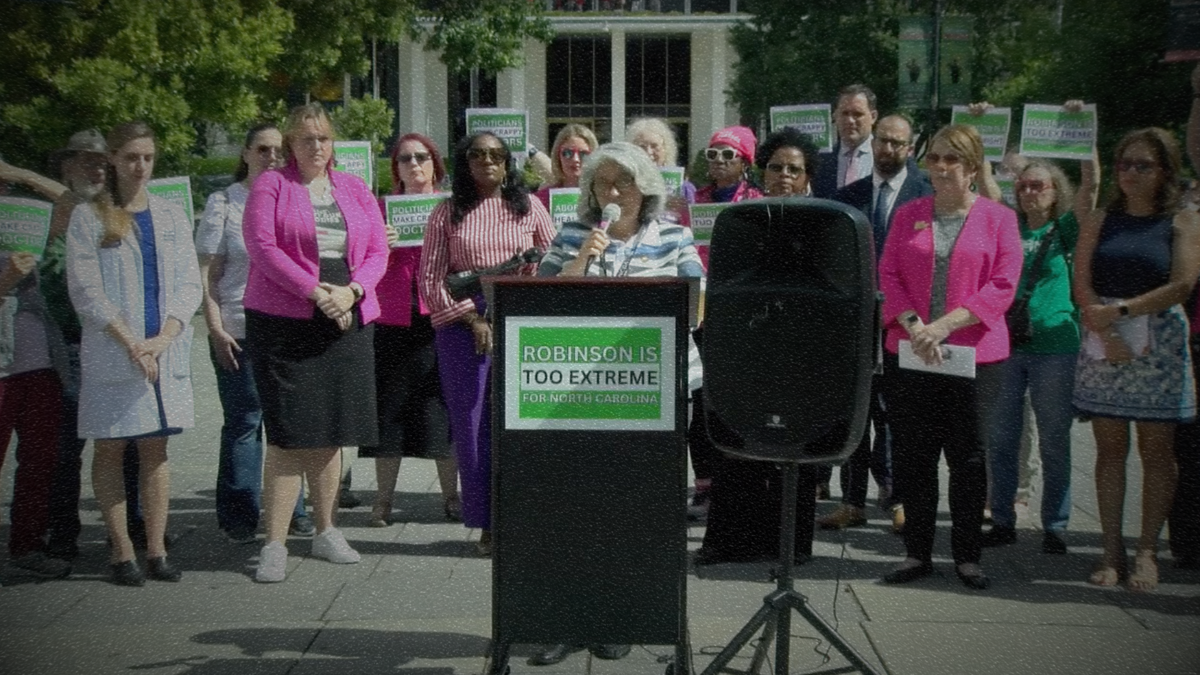Source: Editorial Board
On the anniversary of the Republican-led state legislature voting to increase restrictions on abortion in North Carolina, groups opposed to the ban held a press conference to underscore the measure’s impact.
The legislation, known as Senate Bill 20, banned abortions in North Carolina after 12 weeks with limited exceptions for rape, incest, life-limiting fetal anomalies and protecting the mother’s life.
Advocates and providers have stated that the newly imposed restrictions have severely limited access to abortion care for patients and providers across the state. For Black women across the state, Senator Natalie Murdock (D-Durham) highlighted that measures like SB 20 will have a disproportionate impact for those seeking the critical lifesaving care.
“We know Black women in the United States are three times more likely to die from pregnancy complications compared to white women,” stated Sen. Murdock. “And Black women’s concerns and pain are far more likely to be dismissed and ignored.”
When Senate Bill 20 came up for a vote, Rep. Julie von Haefen (D-Wake) said she worried that it would have a dangerous ripple effect throughout the state.
“Patients have received substandard care for miscarriages, ectopic pregnancies, and other treatments because of the uncertainty created by restrictive laws like this,” Rep. Haefen stated during the press conference.
According to a report from the Society of Family Planning, abortions in North Carolina dropped after the restrictions went into effect on July 1. In the six months prior to the passage of SB 20, the report shows there were 4,527 abortions each month on average in North Carolina. That declined to 3,518 on average each month in the second half of 2023.
“North Carolinians must know one thing that was born out from SB 20, Republicans do not trust women to make their own decisions. Senate Bill 20 told North Carolina women that politicians do not trust you,” stated Rep. Haefen.
For years, state Republicans have pushed forth anti-abortion measures, and have alluded to further reproductive health care restrictions if they keep a supermajority in 2025. In addition, the Republican gubernatorial candidate, Mark Robinson, has stated his intent to pass a complete ban on abortion without exceptions if he is elected.
“Republican nominee Mark Robinson’s extremist views pose a great threat to reproductive freedom in North Carolina,” stated Iliana Santillan, Executive Director at La Fuerza, during the presser. “His careless disregard for women’s autonomy and his advocacy for a total abortion ban demonstrates a dangerous willingness to impose his own personal beliefs on others. Robinson’s attempt to dictate his position based on his own ideology is not only unjust, but fundamentally at odds with the principles of individual liberty and bodily autonomy.”
For advocates, providers, and groups like Planned Parenthood Votes! South Atlantic and Pro-Choice NC, November marks a crucial time to empower voters to vote for the protection of their health and reproductive freedoms. “We will work relentlessly to reach under-engaged communities across college campuses, communities of color and suburban women to ensure that everyone knows this election abortion is on the ballot,” said Jillian Riley, North Carolina director of public affairs for Planned Parenthood Votes South Atlantic. “We are more organized. We are more focused than ever before.”





